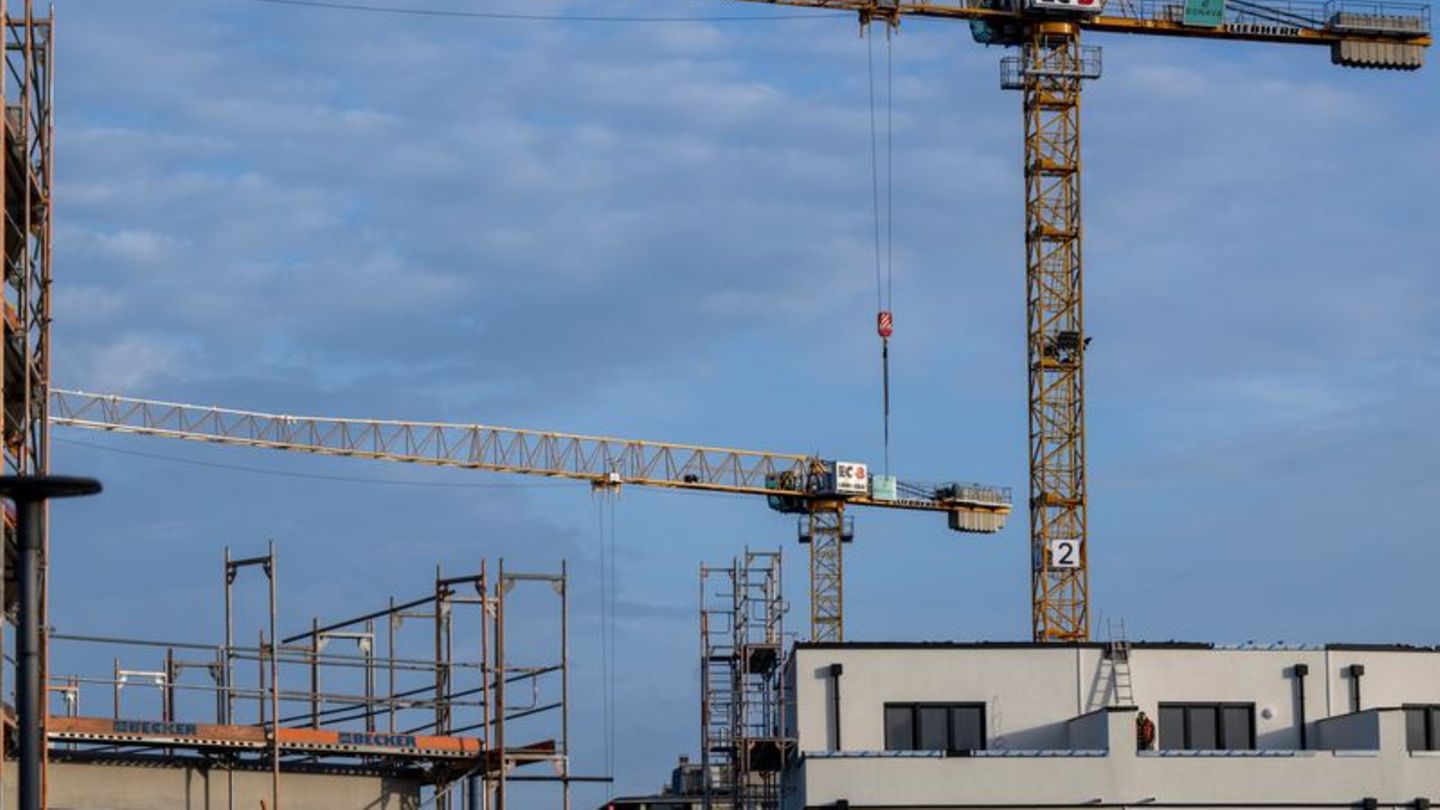There is no relief in sight for the housing construction crisis. The number of approved apartments also fell significantly in May. This means that the previous low figures are in danger of being undercut even further.
There is little relief in sight in the fight against the housing shortage and rising rents in Germany. In May, the number of building permits fell sharply again. They are seen as an indicator of new construction, which is stalling in view of the sharp rise in interest rates and construction costs, while the demand for housing, especially in cities, remains unbroken. The reluctance of builders is also illustrated by a new study by the Hamburg Gewos Institute for Urban, Regional and Housing Research. According to the study, there were fewer purchases of building land in 2023 than at any time since at least 1995.
Building permits down by a quarter
According to the Federal Statistical Office, 17,800 apartments were approved in May, almost a quarter (24.2 percent) fewer than a year earlier. In the first five months, the construction of around 89,000 apartments was approved, which corresponds to a decrease of 21.5 percent or a good 24,000 apartments fewer than in the same period last year. There were strong declines in the first five months of 2024, particularly in single-family homes (-31.5 percent) and multi-family homes (-21.7 percent).
The housing market is still sluggish, said Tim-Oliver Müller, the managing director of the German Construction Industry Association. The federal government has introduced many measures to stimulate the housing construction economy. “In addition to sufficient funding, the solution must be to reduce the almost endless requirements placed on our residential buildings.” Nothing will change without a radical cut in cost-driving regulations.
Praise and criticism for the federal government
The figures show that the annual target of 400,000 new apartments set by the federal government will be even further away this year than in 2023. With 260,100 permits, this was already the weakest year since 2012.
High construction interest rates and “overly ambitious energy requirements” are scaring off prospective builders and investors, said Felix Pakleppa, CEO of the Central Association of the German Construction Industry. Construction must become easier. It is a ray of hope that politicians are taking the initiative with a draft law to simplify housing construction, the Building Type E Act.
According to the Federal Statistical Office, 294,400 apartments were completed in 2023 – slightly fewer than in the previous year (295,300), but significantly more than economists and the real estate industry feared. The weak construction industry and the decline in building permits are only likely to have a delayed impact on production figures. The Construction Industry Association expects around 250,000 new apartments to be built this year.
Purchases of building land at a low
The reluctance of developers to buy building land is also evident. The number of transactions for residential building land ready for construction in Germany reached a historic low in 2023, according to a study by the Hamburg Gewos Institute. The authors see this as a fatal signal in the fight against the housing shortage.
Last year, around 46,700 purchases of residential building land ready for development were registered nationwide, 34 percent less than in the previous year, according to the analysis, which is based on actual transactions. The area turnover fell by almost 40 percent to around 4,400 hectares and the monetary turnover by over 45 percent to 8.9 billion euros.
“Infill development and building extensions alone are not enough”
“Both the number of transactions and the area turnover in 2023 marked lows since the start of the all-German time series of the study in 1995,” said Sebastian Wunsch, Head of Real Estate Analysis at Gewos. “The areas not sold today are the permits not granted tomorrow and the apartments not built the day after tomorrow.” Densification and extensions alone will not close the gap in demand.
With the real estate market analysis IMA, Gewos records the land purchase contracts concluded annually for all independent cities and districts. The analysis has been carried out since 1982 and includes purchases of building land by private households as well as investors.
Sales of residential building land have roughly halved since 2021
Compared to the peak in 2021 in the midst of the real estate boom, the declines are even greater, according to Gewos: In comparison, sales of residential building land have plummeted by 54 percent, and area and monetary turnover have each fallen by around 60 percent.
Sales of building land are a good early indicator for new construction, says Gewos. “While the decline in building permits in this and the coming years is likely to be reflected in falling completion figures, the low sales figures for residential building land ready for construction and building land in the making indicate a long-term low level of new construction activity in Germany.”
Source: Stern




